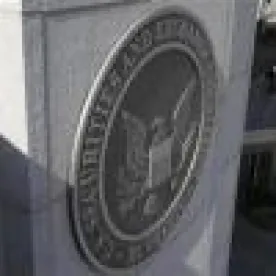Each year, we attend numerous demo days, venture fairs and similar business plan competitions, including both “Premier Nights” for gener8tor’s winter and summer classes. Area startups and emerging companies use these events as platforms to build relationships with potential investors and pitch their companies. However, it is not always clear whether a company’s “pitch” at such events violates the SEC’s ban on general solicitation in private offerings.
When raising money in the private markets, startups and emerging companies most often rely on Regulation D of the Securities Act of 1933, as amended. Rule 506 of Regulation D is overwhelmingly relied upon (as opposed to Rule 504 or Rule 505) as it provides for no limit on the amount that the company may raise and exempts the company from certain state law registration requirements.
Rule 502(c) explicitly bans the offer or sale of any securities under Regulation D by any form of general solicitation or general advertising, which includes (i) any advertisement, article, notice or other communication published in any newspaper, magazine, or similar media or broadcast over television or radio, and (ii) any seminar or meeting whose attendees have been invited by any general solicitation or general advertising.
Historically, companies found Rule 502(c) to be vague and an overly burdensome hurdle to raising money. Such growing criticism of Rule 502’s prohibition on general solicitation was one of the issues addressed by the JOBS Act in 2012, and the SEC issued final rules on a new Regulation D exemption (Rule 506(c)) that allows general solicitation if certain additional steps are taken to verify that an investor is “accredited.” See our client alert on the general solicitation rules here.
Although the implementation of the general solicitation rules gave startups and emerging companies a way to raise money by using general solicitation, it also called into question whether the SEC would put a stake in the ground and declare a company’s attendance or pitch at a demo day as general solicitation. Accordingly, in August 2015, the SEC indicated its position (among other things) that a demo day or venture fair does not necessarily constitute general solicitation.
According to the SEC, whether a demo day or venture fair pitch constitutes a general solicitation will depend on the facts and circumstances of each case. Of course, there is no general solicitation if a company’s pitch to an audience does not involve an offer of a potential investment. However, if a company’s pitch does include an offer of a potential investment, such pitch may not constitute general solicitation if attendance is limited to persons with whom the company or the event organizer has a pre-existing, substantive relationship or who have been contacted through a pre-existing informal, personal network (such as an “angel investor” group).
Historically, the SEC has shown no sense of urgency to enforce the ban on general solicitation or other anti-fraud provisions as they relate to demo days. Perhaps, the SEC has chosen to keep such events “off-the-radar” because such events tend to contribute to the economic growth of a community and are typically managed by credible investors. However, in light of the SEC’s recent clarification of what constitutes general solicitation, it is unclear if or when the SEC will choose to enforce their position.
Accordingly, a bi-partisan group of Members of Congress recently introduced H.R.4498 – the Helping Angels Lead Our Startups Act (HALOS Act). A similar bi-partisan bill is also in the Senate.
The HALOS Act would exempt demo days (that meet certain sponsorship requirements) from all general solicitation requirements, while allowing a company to include in its pitch (a) that it is in the process of offering securities or planning to offer securities, (b) the type and amount of securities being offered, (c) the amount of securities being offered that have already been subscribed for, and (d) the intended use of proceeds of the offering.
The status of the HALOS Act will be an interesting development to watch this year. Until its potential passage, startups and emerging companies should continue to proceed with caution when announcing a pending financing round during their demo day pitches.





 />i
/>i
